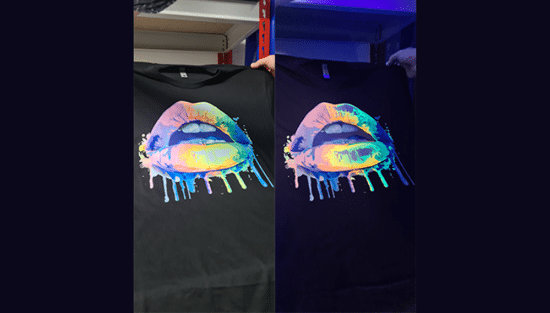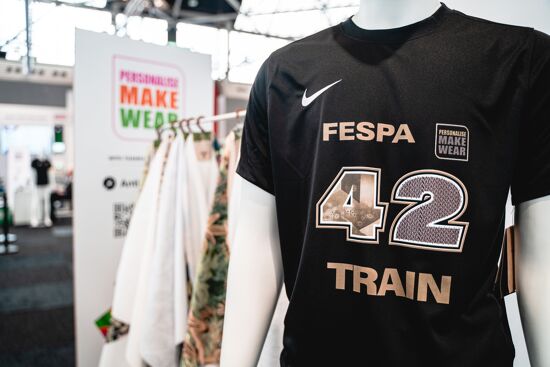Shift to environmentally sustainable production being driven by customer demand
.png?width=750)
From packaging through to advertising and even interior décor, environmental sustainability is increasingly high on the agenda for consumers and thus for the brands and companies they buy from. Sean Holt discusses the findings from the 2018 FESPA Print Census that highlights the importance of environmentally sustainable production.
One major trend that emerged from the Census was that businesses are becoming increasingly customer-centric in their focus and this certainly carries through to the drive for more environmentally sustainable production too.
Many PSPs’ (print service providers) environmental investments and business decisions appear to be strongly influenced by their customers’ expectations around sustainable materials and production. In fact, some 76% of respondents reported that their business strategy is being shaped by customer demand for environmentally responsible products.
Exhibitor feedback from FESPA’s 2018 Global Print Expo also reflected that PSPs are taking their customers’ demands to heart, with a number remarking on greater awareness of issues around sustainability and carbon footprint reduction, as well as greater interest in eco-friendly substrates, inks and technologies.
Indeed, while 32% of Print Census respondents have responded to these demands with investments in energy-efficient or environmentally-certified equipment, it seems that on the whole PSPs are embarking on a broad range of initiatives as they strive for improved sustainability. From investments in training on sustainability to the use of VOC-free inks and recyclable media, as well as end-of-life recycling programmes, PSPs appear to be exploring all of their options.
What is even more encouraging is that 72% of PSPs report having been able to invest in sustainability without increasing the cost to their customer. This has enabled them to remain competitive and preserve sales, while simultaneously meeting customer demand for ‘greener’ services – a truly customer-centric approach.
Overall this paints an extremely encouraging picture for the future of the speciality print sector; healthy business growth and profitability can be achieved through rather than in spite of investments in sustainability. With one in five PSPs citing sustainability as a major influence, FESPA Global Print Expo 2019 (14 to 17 May) in Munich is sure to provide them with an excellent opportunity to explore possible new paths to more environmentally sustainable production. For example, many of the garments that will be produced for FESPA’s interactive fast fashion feature, Print Make Wear, will involve the use of more sustainable inks and materials, as will many of the décor applications being showcased at Printeriors.
For more insight on the environmental findings from our FESPA Print Census, watch our Census video with here: https://www.youtube.com/watch?v=E8c121oP8Ek
Topics
Interested in joining our community?
Enquire today about joining your local FESPA Association or FESPA Direct
Recent news

Streamlining personalisation with tech: Insights from the SmartHub Conference 2025 speakers
Personalisation Experience 2025 (6 – 9 May 2025, Messe Berlin, Germany) is running its inaugural SmartHub Conference from 6 – 8 May 2025.

Special Effects in DTF: How Neon Inks Are Making Apparel Pop
Neon fluorescent inks are the latest innovation in DTF printing, offering vibrant, eye-catching effects under both daylight and UV light, giving apparel decorators a competitive edge. Testing shows good wash durability, though market perception of added value is still developing. With increasing adoption and ongoing technological advancements, neon represents a significant upgrade for creative customisation.

Unlocking Growth Opportunities in the Printed Personalised Apparel Industry
The printed personalised apparel industry is booming, projected to reach $10.1 billion by 2030. Driven by consumer desire for self-expression and branding needs, technological advancements like DTG/DTF and e-commerce integration are key. Sustainability, eco-friendly materials, and on-demand printing are crucial growth drivers. Businesses leveraging these trends, including AI and social media, have significant commercial potential.

Personalisation: From mass production to print-on-demand
Technological advancements are driving the growing trend of personalisation, fueled by consumer demand for unique products. From packaging campaigns like Share-a-Coke to customised apparel by Nike and Adidas, and AI-powered tools, the shift from mass production to print-on-demand is evident. The SmartHub Conference at the Personalisation Experience from 6 - 8 May will explore these opportunities and challenges for businesses.